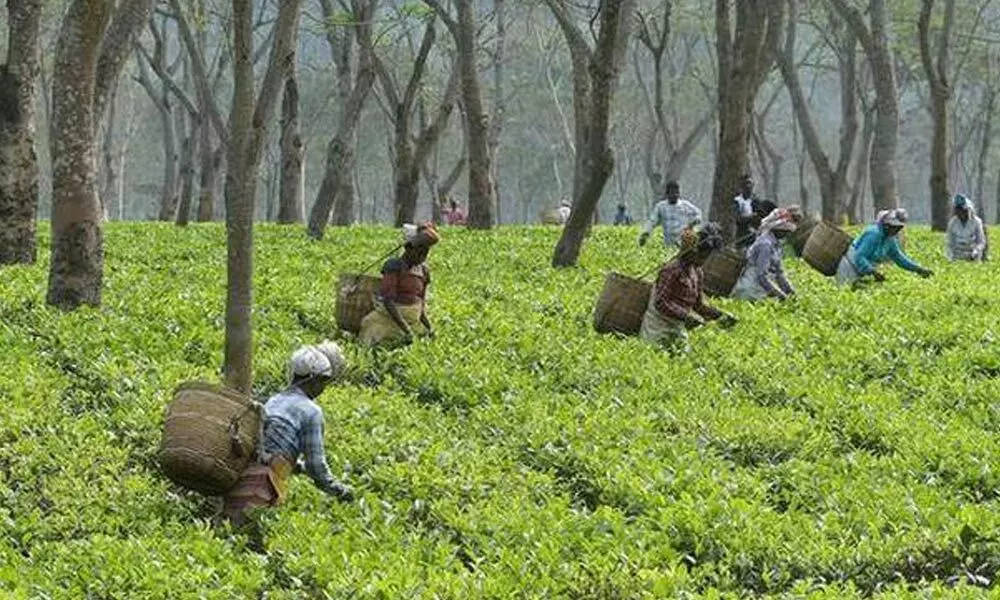India's import of cheap tea and Afghan crisis impacting tea industry
It’s all about ‘Chai pe charcha’! And that too, at a time when the Indian Prime Minister Narendra Modi has just come back from the 76th session of the United Nations General Assembly
image for illustrative purpose

It's all about 'Chai pe charcha'! And that too, at a time when the Indian Prime Minister Narendra Modi has just come back from the 76th session of the United Nations General Assembly, where while highlighting the strength of the Indian democracy, he boasted how a little boy who at one time used to help his father at his tea stall, is today addressing the UNGA for the fourth time.
There are couple of developments facing the Indian tea industry that need immediate attention.
First, India, its position as the world leader in black tea production notwithstanding, saw import of cheap teas from Kenya, Nepal and other destinations shooting up to 12.16 million kg in the first six months of 2021, more than three-fourths of the full-year imports of 15.86 million kg in 2019, a pre-Covid-19 pandemic year. The imports were up 176 per cent year-on-year. In January-June of 2020, the country had imported 4.41 million kg of tea. In the first six months of 2021, India imported a whopping 12.16 million kg of cheap teas from Kenya, Nepal and other destinations.
Things have come to a pass that the Darjeeling Tea Association (DTA), the umbrella body of 87 tea gardens in the Hills, has written to the Bengal chief minister Mamata Banerjee seeking her urgent intervention to 'save the industry' by facilitating a blanket ban on the import of cheap and low-quality leaves from Nepal, which has been tarnishing the image and global brand value of the iconic brew.
Darjeeling tea industry is not getting the required attention that it deserves. Unless import of Nepal tea into India is banned, the livelihood of those dependent on it would be at risk and may reach a point of no return, where more tea gardens in the Hill would shut down.
If this is one sore point, the other area of concern is that the tea shipments to Afghanistan have been dwindling for over a year now. And now with the Afghan crisis, things may go even worse.
Interestingly, the good political relationship between India and Afghanistan in the recent years had earlier helped that country to import tea from India but the emergence of Iran and the UAE as strong importers next to the CIS and the USA had reduced the availability of tea to Afghanistan.
The volume of tea shipped to Afghanistan declined also because of a sharp increase in the average price to Rs135 a kg from Rs 110 in the previous fiscal. And with reduced volume, the overall earnings from tea shipments to Afghanistan dropped to Rs1.35 crore from Rs 2.31 crore in the previous fiscal. In dollar terms, the earnings fell to $ 0.19 million from $0.31 million.
And last but not the least, precisely the same time when the Prime Minister was boasting the accomplishment of a tea seller boy, thousands of tea workers are up in arms against his government for being oblivious of their plight. On September 2, a Tea Board directive asking each tea estate and small tea grower to celebrate the seventy-fifth year of India's Independence. Workers were told to congregate and sing the National Anthem while small tea growers will join the celebration by planting around 1.50 saplings in the villages and the management of tea estates have been asked to hand over a packet of 250 grams or 500 grams of tea to each worker as a token of appreciation for participating in the celebrations.
This has irked the tea garden workers, who felt dejected as no fund has been allotted in any tea estate out of the promised corpus of Rs1,000 crore for the welfare of the tea population, especially women and children.

